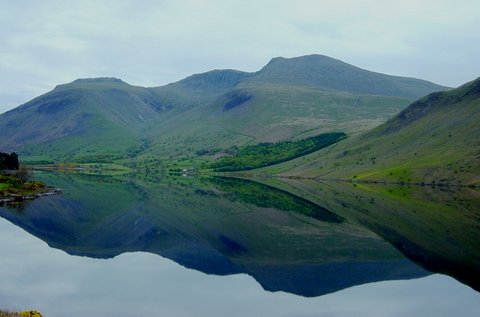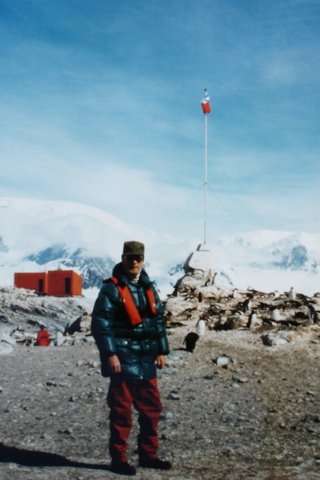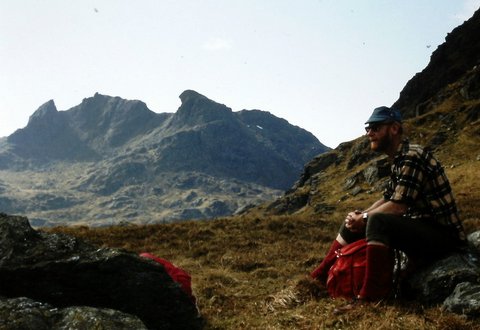Iain, you have written a novel,
While I’m Here Doc, based on your experience of decades of working as a general practitioner. What was your motivation to write this?
I wanted to describe the change in family practice over 50 years. General practice as worked in my time has changed markedly from the night and day on-call commitment, practice of obstetrics and hands-on minor operations which were then the norm. The practice dominated the family life of GP and his wife.
Tell us a little about
While I’m Here Doc.
Although much of family practice was mundane, the unusual and unexpected livened many a day and night, and patients from every walk of life had intriguing stories to tell.
You use a certain amount of medical terms in your book. What readership is it aimed at?
Some medical terms cannot be avoided, but I tried to simplify descriptions for the lay reader. I hope the book will appeal not just to nurses and doctors but to the general public.
Your setting is Harborough in the lowlands of Scotland. Is this a fictional village?
Yes

I presume that many of the histories from the patients are based on real consultations. How did you protect your patients’ anonymity? Was this difficult?
Characters are fictional, but to further fuzz resemblance to any patient, age, sex, job, year, scenes were changed. It was not too easy for I had to envisage each personality as a new entity.
You have already written several books, and I am aware that we’ve both contributed chapters to the
Oxford Handbook of Expedition and Wilderness Medicine. When did you start writing?
I published my first short story when aged eighteen and wrote a first novel a couple of years later. My book titles speak for themselves and reflect a long interest in travel medicine and geriatrics. Here is a link to my amazon author page author central
How difficult was it to move from non-fiction to fiction?
It is tricky to keep thinking of need for direct speech and to embroider the scene instead of terse scientific record writing.
Did your non-fiction writing teach you how to write descriptive prose?
I went from descriptive narrative to non-fiction.
Your latest novel begins by giving the background of the narrator. Were you also written off by your teachers? Did that stimulate a determination to prove them wrong?
In retrospect, I think the teachers, who did a good job on a lazy recalcitrant pupil, actually thought I had academic potential. Twenty years after leaving school the teacher who whacked my hands was admitted as a patient and surprised to see me as his medic. I had not met him in the interim and his first words were, “I always thought you had it in you.”
Early departure from school did leave a feeling of academic inferiority however which I took on to my medical career. This did drive me to achieve post graduate qualifications and ensured I was still studying into my late fifties.
Tell us about how you worked your way up to the position of family physician.
I had 25 paid jobs from the time I left school until finally starting in general practice! So it was long process but this ensured I had something in common with most of the patients.
I believe you have had many roles including involvement with the British Global and Travel Health Association. Could you tell us something about this area of work – and travel?
My travels started in the RAF and I worked my way home through Africa, Middle East and Europe on discharge from the service. My wife and I spent all our spare funds on penny-pinching travel and the more exotic and remote the destination the better. I enjoyed high altitude climbing and as leader and expedition doctor was fortunate to visit all the continents and the highest mountains ranges in the Americas and Asia. I wrote up many of these ventures and started the first GP travel health clinic in Central Scotland. GPs became involved in travel medicine as global travel became possible for citizens. This brought the opportunity to co-found the British Travel Health Association, create the association’s journal and became a lecturer in this field. Later the BTHA became the British Global and Travel Health Association, recognising that not all travellers are tourists.
.JPG)


Why was nursing less satisfying than working as a doctor? What are the attractions of each profession?
Nursing was rewarding and if I had failed to become a doctor I would have stayed in the profession. However in my time male nurses were rare and were not allowed to carry out all the duties of female counterparts. It was a female dominated profession and advancement beyond staff nurse was unlikely.
You describe the early days of general practice. Tell us why this was the golden age of the profession.
There was a large manual and practical element to practice, with suturing, lancing, injecting, sterilising, bandaging, ear-syringing, ear-piercing, circumcising and even chiropody as all part of the day. It was hands-on and the more expertise you had the more you could and did for the patient. The practice nurse has now taken on many of these duties. These, with obstetrics, built up a rapport with the patient that has been lost in recent years.
Your opening anecdote provoked a certain amount of tension in this reader. How difficult was it to revisit that traumatic event?
This was a first in GP but I had experienced worse scenarios in the RAF with less expertise and often with no immediate support at all.
Do you think patients were more compliant and complained less in those early days?
Yes. We practised paternalistic medicine, and free medical care was still in its infancy, so the serviced was appreciated. Complaints were rare in early years, but we were immediately available to patients by night and day, with out of hour calls usually dealt with, within an hour. In 35 years, I had one formal complaint logged. My car was off the road and I rushed to a pseudo emergency call on my bike. I berated the patient for abusing the service and they had reported me before I arrived back in the surgery. The Health Board recommended me for my prompt response!
Were your early patients more likely to accept lifestyle advice and thereby improve their health than these days?
No. Most were heavy smokers but few were overweight.
Do you think contemporary patients appreciate the skills acquired by a GP over their lifetime of service or do most patients trust an MRI more than a skilled family doctor’s opinion?
Cradle to grave GP care was not unusual in my time and I think there was a much closer relationship between doctor and patient and perhaps greater respect and appreciation than there is today. I meet patients not seen since leaving the practice many years ago and they say, “We still think of you as our doctor” which perhaps infers a bond not necessarily apparent today. As to trust, expectations and roles have changed. The patient expects and often demands something more than an opinion.
While I'm Here Doc is available via the British Global and Travel Health Association website
BGTHA
Dr McIntosh’s author website is
http://www.imci.co.uk
.jpg)